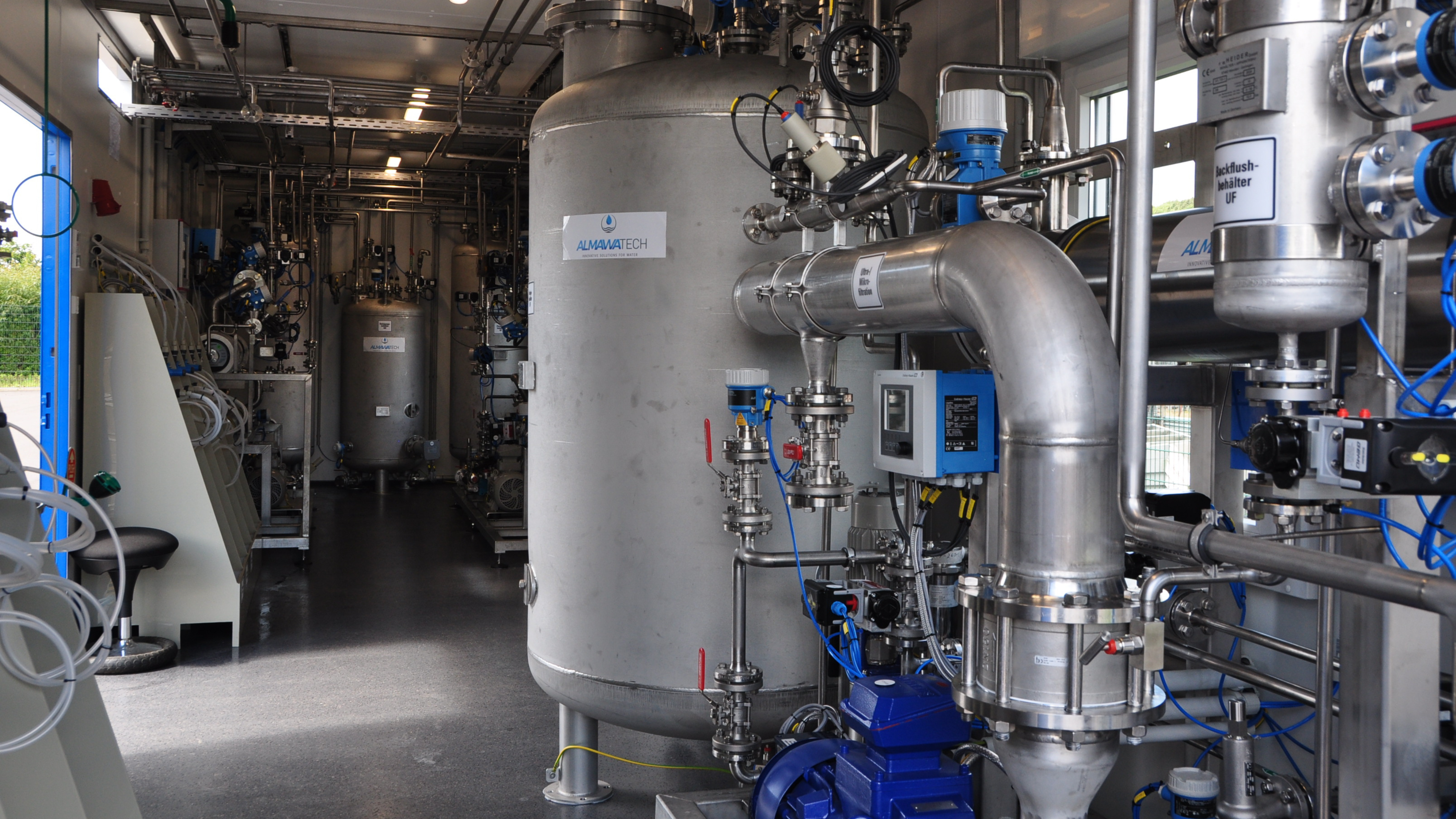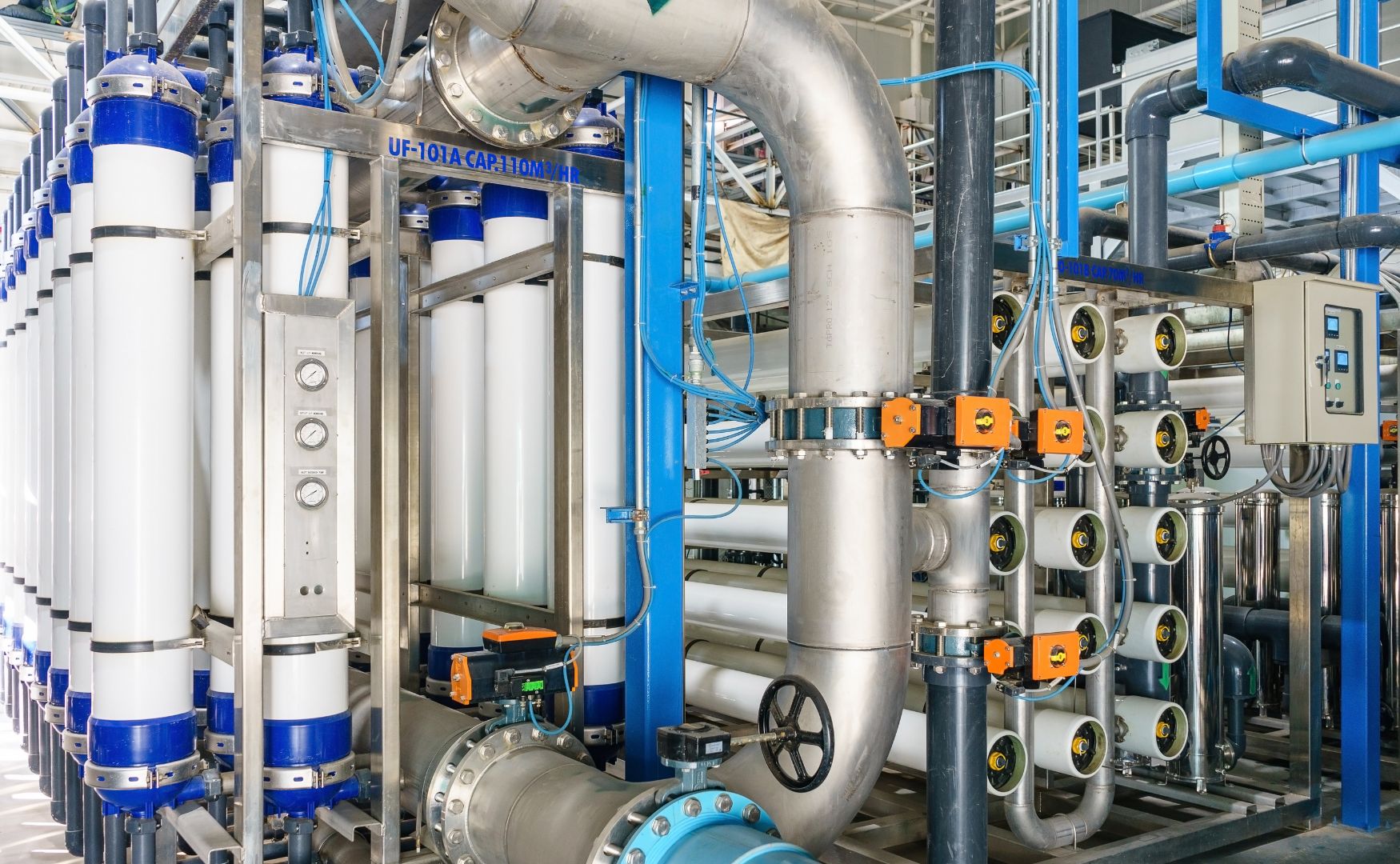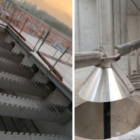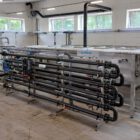A nanofiltration system is a state-of-the-art treatment unit that purifies water with the help of nanofiltration membranes (NF membranes) treated. It combines effective removal of dissolved organic matter, hardness constituents, pesticides and heavy metals with moderate salt retention. These systems are essential in industrial water treatment, where they act as a bridge between ultrafiltration and reverse osmosis function.
Table of contents
Technical basics and structure
Nanofiltration systems consist of the following core components:
Nanofiltration membranes
These membranes have a typical pore size of 0.001 to 0.01 micrometres and are configured in spiral elements. They enable selective separation of multivalent ions (e.g. calcium, magnesium) and large organic molecules, while allowing single-particle ions (e.g. sodium and chloride) to partially pass through.Pump system
Powerful high-pressure pumps are used to provide the required pressure (4 to 30 bar) for the filtration process.Pre-treatment units
The systems are often equipped with pre-filters or precipitation and flocculation stages to remove coarse impurities or dissolved solids prior to filtration.Control and monitoring
The NF systems are equipped with automatic control systems that continuously monitor operating parameters such as pressure, flow rate and salt retention.Cleaning-in-place unit (CIP)
Cleaning-in-place systems ensure regular cleaning of the membranes to minimize fouling and scaling and ensure consistent filtration performance.

Photo: ALMA Mem UF nanofiltration module in stainless steel design, installed in the ALMA Modul technical room container
Functionality
The water is forced through the membranes under pressure, whereby impurities are retained and discharged in the concentrate stream. The purified water flow, the permeate, contains significantly reduced quantities of hardness constituents, organic substances and polyvalent ions.
Areas of application
Drinking water treatment
Nanofiltration systems remove organic pollutants, heavy metals and hardness constituents, significantly improving the quality of drinking water.Food and beverage industry
In milk processing and beverage production, NF is used to desalinate and concentrate liquids, e.g. for processing whey.Industrial process water treatment
In the chemical and pharmaceutical industries, NF systems treat process water by selectively removing interfering ions and organic compounds.Wastewater recycling
NF systems enable the reuse of wastewater, particularly in the textile and paper industries, by separating out unwanted substances and treating the water for reuse.Desalination of brackish water
For partial desalination of brackish water if complete salt retention is not required as with reverse osmosis.
Advantages
- Efficient salt and hardness reduction: Ideal for softening and the selective removal of organic substances and polyvalent ions.
- Energy efficiency: Compared to reverse osmosis, a lower operating pressure is required, which reduces energy costs.
- Wide range of applications: From drinking water to waste water treatment.
- Protection of downstream systems: Prevents scaling and fouling in reverse osmosis systems or other downstream filtration systems.

Photo: Individual ALMA MEM UF nanofiltration systems for industrial water treatment
Challenges
The main problems with NF systems are fouling and scaling. Fouling is caused by the deposition of organic substances or microorganisms on the membrane surface, while scaling is caused by the precipitation of salts such as calcium carbonate or barium sulphate. These problems can be prevented by careful pre-treatment of the raw water and the use of antiscalants minimized.
ALMAWATECH solutions
ALMAWATECH offers innovative nanofiltration solutionsthat are specially tailored to the requirements of various industries. Our systems are equipped with state-of-the-art measurement and control technology to ensure maximum operational reliability and efficiency. Through pilot testing, we can develop the optimum solution for your specific water or wastewater stream.
Conclusion
Nanofiltration systems are indispensable tools in modern water treatment. They combine high selectivity in the removal of hardness constituents and organic impurities with moderate salt retention. Their versatility and efficiency make them a key technology for sustainable and economical water use in various industrial applications.
For further information on our products, please feel free to contact us at any time!








